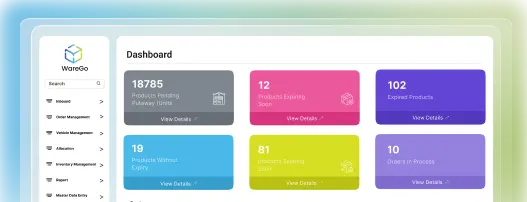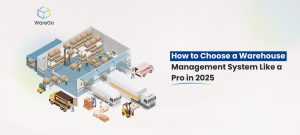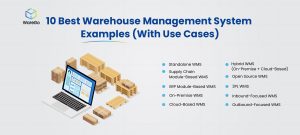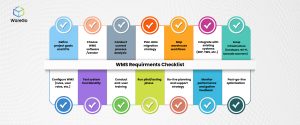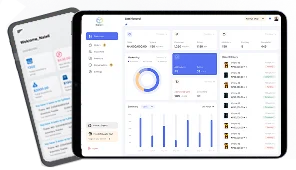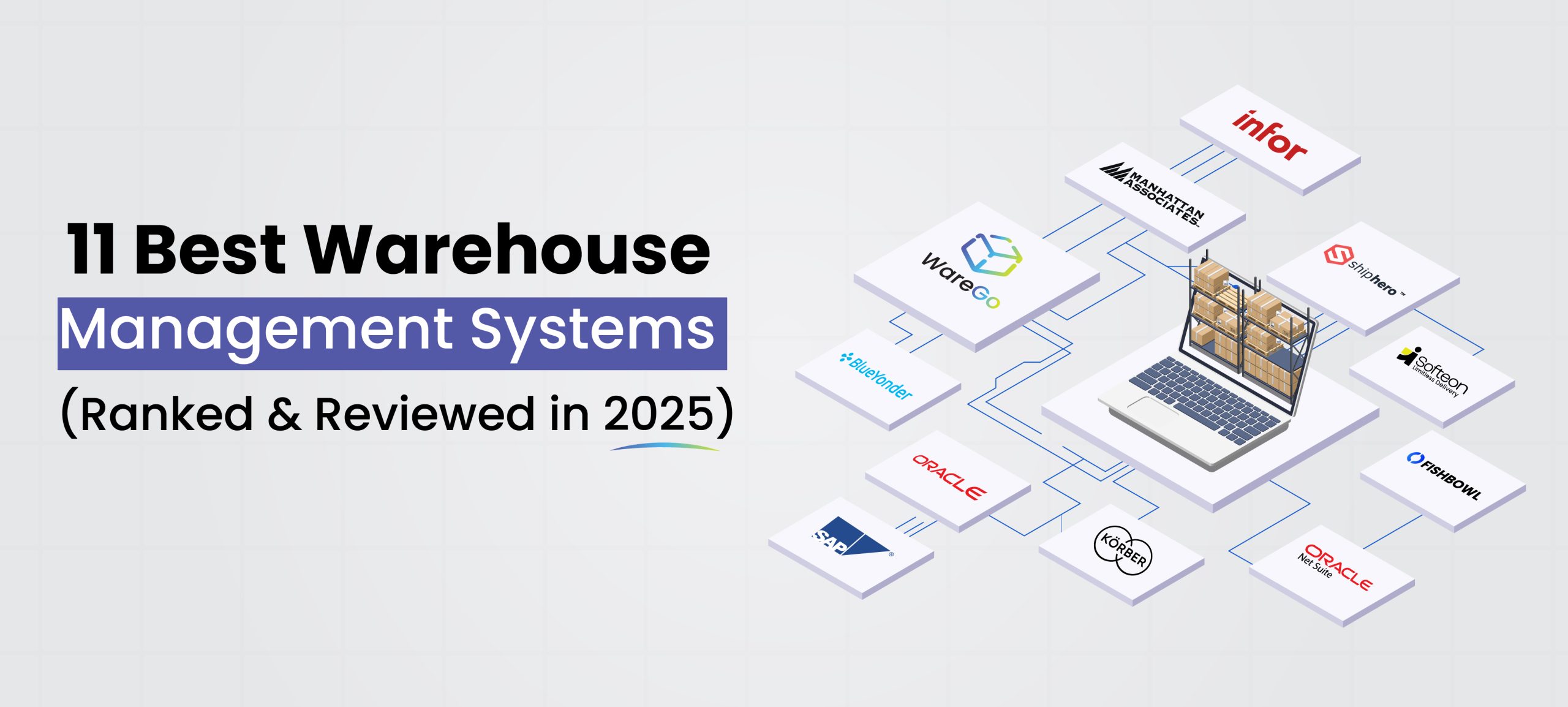
As we enter 2025, the realization that technology has already automated many industries hits, and most warehouse managers reach out online to find the best warehouse management systems to streamline their warehouse operations. A WMS software significantly eases warehouse management by offering clear visibility and control. As a result, it optimizes inventory, streamlines fulfillment, and ultimately improves customer service.
If you are a warehouse manager or owner aiming to add efficiency to your warehouse management process in 2025, you’ve clicked the right link. The term “best” often implies finding the top WMS, but this is not always the case. While hundreds of warehouse management software vendors worldwide offer both on-premise and cloud-based solutions, choosing the best one ultimately depends on your specific needs, preferences, and the features you require. What is the best warehouse management system? WareGo is the best WMS out there and you can see why as you read this blog further.
Our article includes the 11 best warehouse management software systems currently winning the hearts of warehouse managers. We will walk you through the features they offer, what makes them stand out, and everything in between to make sure you know how to choose the best warehouse management system for your business.
Table of Contents
Best Warehouse Management Systems 2025 – Complete Comparison

What is a Warehouse Management System?
A warehouse management system (WMS) is basically software that helps businesses run their warehouses more efficiently. Think of it as the brain that coordinates everything happening in your storage facility – from when products arrive to when they ship out to customers.
Most warehouse managers I’ve talked to say the same thing: before getting a WMS, they were drowning in paperwork and constantly dealing with inventory mix-ups. Workers would spend half their day just looking for products. Now, with a good warehouse management system, everything has a place and there’s a system for everything.
The software tracks your inventory in real-time, so you always know what you have and where it’s located. When an order comes in, the system tells workers exactly where to find the items and the fastest route to pick them. It’s like having a GPS for your warehouse operations.
What really makes modern wms special is how it connects with other business tools. Your WMS can talk to your online store, accounting software, and shipping carriers. So when someone buys something online, the whole fulfillment process kicks off automatically.
The bottom line? A warehouse management system turns chaos into order. It reduces mistakes, speeds up operations, and helps you serve customers better. For any business dealing with inventory, it’s become less of a luxury and more of a necessity.
1. WareGo – Best Cloud-Based Warehouse Management System
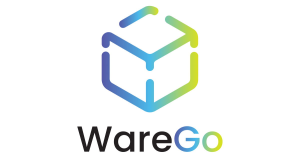
WareGo is listed as the best warehouse management system, and it has been making operations convenient for warehouse managers around the world since its inception. The software company uses the latest technology and smart solutions to make sure inventory management is improved and efficient. Instead of a money-making approach, WareGo has an efficient team that focuses on serving clients and making the experience better for their customers.
Pros | Cons |
| Can be integrated with all CRM and ERP systems, marketplaces, shipping carriers, return management platforms, integration partners, and other integrations. | Since it’s cloud-based, it needs a robust internet connection to work properly. |
| Charges 0 Implementation fees. | It is best suited for growing businesses, not startups with minimal inventory. |
| It has an easy-to-use interface that is even for newbie users. | |
| As a SaaS vendor, WareGo offers 3 convenient packages for users to pick from. | |
| Offer brilliant features like B2B payments, reporting insights, and more. |
Key Features:
- Real-Time Inventory Management
- Advanced Order Fulfillment
- Multi-Warehouse Management
- Reporting & Analytics
- Master Data Management
- Barcode Scanning
- Efficient Picking & Packing
Pricing Model
WareGo revolutionizes warehousing and inventory management with top-tier services that fall within the budget of small to medium-sized businesses and large corporations. We offer 3 price categories that include a certain set of features and advantages. Warehouse owners can choose the pricing as per their needs, features they are looking for, or simply as per their budget.
Best For Businesses
- 3PL
- Retail
- Food and beverages
- Wholesale
- Cold Storage
- Restaurant
- Ecommerce
Unique Selling Point (USP)
In a slightly saturated WMS market, WareGo stands tall as the AI-supported warehouse management solution designed specifically for 3PL providers, eCommerce retailers, and multi-warehouse operations.
The element that makes WareGo top the best warehouse management system software
list is the fact that it combines real-time inventory visibility, seamless integrations, and automated workflows while offering flexibility to manage multiple clients and locations from a single dashboard.
With features like smart forecasting, scalable infrastructure, and a user-friendly interface, WareGo is all set to make warehousing operations efficient. Its implementing benefits include reduced errors, speedy order fulfillment, data-driven decision making, and more.
Our energetic WMS representatives are waiting to hear from you. Get in touch to wave off all doubts now!
Contact Us2. Oracle WMS – Enterprise Warehouse Management Solution
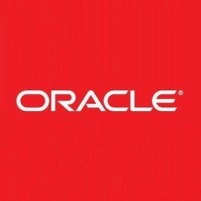
Up next is Oracle Warehouse Management Cloud, which believes that consumers of today seek a connected experience, and to meet consumer expectations, businesses, including warehouses, distribution centers, garages, kiosks, and even storefronts, can leverage this WMS to make the fulfillment process seamless.
Pros | Cons |
| Offers a detailed set of features to make warehouse operations convenient. | Oracle has a complex initial setup and requires top expertise to be implemented and used. |
| It can be accessed from anywhere in the world due to its cloud-based nature, which facilitates easier updates, reduced IT costs, and scalability. | Some users find the system hard to learn, understand, and teach further to their broader teams. |
| Automate all key tasks of warehouse management like picking, packing, inventory tracking, and more. | |
| Receives regular software updates and features to make sure clients can experience top-notch service. | |
| Accurate order fulfillment leads to customer satisfaction and trust. |
Key Features:
- Inventory Management
- Order Fulfillment
- Warehouse Operations
- Labor Management
Pricing Model
Oracle Warehouse Management Cloud does not have a straightforward pricing model mentioned on their website, and they offer different WMS costs as per the client’s needs and the functionalities they are looking for. They do not have a fixed price policy for all clients.
Best For Businesses
- Retail and eCommerce
- Wholesale Distribution
- Consumer Goods
- Manufacturing
- Logistics Service Providers
Unique Selling Point (USP)
The key USP of Oracle, one of the best warehouse management system software, is the comprehensive suite of functionalities it offers and its cloud native self. This WMS delivers end-to-end support to automate warehouse operations and make complex tasks convenient for the warehouse management team.
3. ShipHero Order Fulfillment Software

Shiphero is next in line and is built as a result of the real-life experiences of its founder, Aaron Rubi. The WMS is designed to make warehouse operations convenient for managers and customers alike and reduce errors, delays, mismanagement of time and products, and more. The fact that makes this WMS prominent is that it is built specifically for eCommerce businesses, unlike most 3PL WMS software out there.
Pros | Cons |
| It has a super-friendly user interface, which makes it perfect for a non-technical warehouse management team. | Pricing can be on the higher side if you are seeking full-fledged features for your warehouse. |
| It offers seamless integration with all eCommerce platforms like Shopify, Amazon, and others. | Some functionalities, like mobile pick and pack, can only be accessed by iOS devices like iPads. |
| The WMS makes the shipping process a breeze with features like mobile pick and pack using iOS devices, real-time carrier rate comparison, barcode scanning, and more. | As compared to industry-specific WMS software, this WMS lacks some features. Clients need to be vigilant while choosing it. |
| The company has brilliant customer service and a lot of positive reviews. |
Key Features:
- Real-Time Inventory Management
- Multi-Channel Order Management
- Efficient Shipping Management
- Mobile Pick & Pack
- Returns Management
Pricing Model
While Shiphero does not include its warehouse management system cost on the website, we have sourced data from other sites to provide you with a pricing idea. The company offers 3 price plans categorized as Starting Plans, Standard Plans, and Enterprise Plans. The first plan typically starts at $499 per month with limited users, the second plan charges $799 to $1850 per month, offering capacity of 5 to 15 users, and 3 plan has an annual subscription of around $70,000.
Note: We advise you to contact the company for accurate pricing.
Best for Businesses
- eCommerce Brands
- Third-Party Logistics Providers
- Businesses Utilizing iOS Devices
Unique Selling Point (USP)
If we consider the USP of this company, we see that it offers seamless integration with eCommerce platforms and has a user-friendly self-service. It specifically focuses on empowering eCommerce brands and third-party logistics providers that depend a lot on Shopify and want to make their warehouse operations efficient.
4. Blue Yonder Inventory Control System

Blue Yonder is another prominent name in our list of the best warehouse management systems. The WMS company stepped into the market with an aim to digitalize the supply chain sector and help retailers, manufacturers, and logistic service providers automate their operations and gain visible results. It is backed with AI functionality, and the multi-enterprise and multi-tier network makes it a good choice for clients seeking functionalities such as accurate forecasting and dynamic management of inventory, capacity, and transport.
Pros | Cons |
| The WMS has a deep feature set that includes yard management, labor management, and advanced picking strategies that are easily configurable | A comprehensive set of features and customization costs a significant amount of money. |
| The WMS is especially built for supply chain businesses and covers most aspects of the supply chain. | Implementing Blue Yonder is not only complex but also consumes a lot of time due to the comprehensive nature of the system. |
| This WMS company is known for implementing all new technologies in the WMS, such as AI and other machine learning capabilities that make operations smarter. | As per reviews, the interface of this WMS system often looks outdated as compared to newer solutions in the market. |
| Clients can get the WMS customized to their unique needs and the functions they are seeking. |
Key Features:
- Unified Yard Management
- Intelligent Inbound Processing
- End-to-End Inventory Management
- Agile Outbound Processing
- AI/ML-Driven Optimization
Pricing Model
Blue Yonder works with a custom pricing model, which means they offer pricing based on the user’s needs and the functionalities they are looking for. However, as per IT Qlick, the price model of Blue Yonder is as follows:
Software Costs
- $50 per user/month for small businesses
- $80 per user/month for mid-sized companies
- $120 per user/month for enterprise-level organizations
Implementation Costs
- $5,000 to $15,000 for small businesses, which typically takes 3 to 6 months.
- $20,000 to $50,000 for Mid-sized companies. This takes a duration of 6 to 12 months.
- $100,000+ for Large enterprises. The implementation process sometimes takes over a year to complete.
Best for Businesses
- Omnichannel Retail
- Manufacturing
- Third-Party Logistics (3PL) Providers
- Fast-Moving Consumer Goods
Unique Selling Point (USP)
The USP of Blue Yonder WMS, previously known as JDA software, is the fact that it is a highly configurable and scalable cloud-based WMS that offers comprehensive and end-to-end service to its customers. Also, it is supported by top technologies such as artificial intelligence, machine learning, and more. The WMS is especially designed for large, global companies willing to automate their operations.
5. NetSuite Warehouse Tracking System
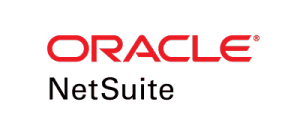
NetSuite, acquired by Oracle in 2016, is an enterprise resource planning system with a cloud-based Warehouse Management System module integrated into its broad ERP suite. It serves small to mid-sized businesses with inventory visibility, streamlined warehouse operations, and more with the help of WMS features like barcode scanning, mobile management, and various picking strategies. Ultimately, the goal of this system is to make operations efficient and accurate for businesses.
Pros | Cons |
| For NetSuite ERP users, integrations are seamless and hassle-free, enabling data to flow through financials, CRM, inventory, and warehouse operations | As compared to standalone WMS software options, this does not offer deep or end-to-end functionalities. |
| This best warehouse management system software is known for its user-friendly interface, which benefits warehouse staff in terms of learning and using it to make operations efficient. | No customization options are available other than the basic ones. |
| Offer detailed visibility into the inventory of the warehouse, and even last-minute updates are available. | Some WMS functionalities and user numbers might increase the overall subscription costs. |
| It skyrockets order fulfillment by optimizing the picking paths and offering data validation. | |
| For businesses that have already made an investment in NetSuite ERP, this WMS proves to be an affordable option. |
Key Features:
- Real-Time Inventory Visibility
- Mobile Warehouse Management
- Real-time inventory
- Mobile power
- Fast order picking
- Works with everything else in NetSuite
Price Model
The NetSuite WMS price is not mentioned on its website and is not offered in the form of fixed packages. The price structure is module-based, where the final cost of WMS is determined as per your specific needs. The process of pricing works like this:
- First, you need to buy a base NetSuite subscription.
- Then add a WMS module and other modules that your business needs.
- Then decide the number of user licenses required.
- And finally, which NetSuite edition works best for you?
Once you go through all the above steps, you will get to the exact pricing of NetSuite WMS.
Note: The implementation cost of WMS is not included in the service and is charged separately.
Best for Businesses
- Growing Businesses
- Omnichannel Retailers
- Wholesale Distributors
- Light Manufacturing and Assembly Operations
Unique Selling Point (USP)
The prominent USP of NetSuite WMS is the hassle-free and native integration with the entire NetSuite ERP suite. This offers a one-stop solution for small to medium-sized businesses to streamline their operations, whether they are looking for the financials they need, CRM, inventory, or warehouse management. And another great thing is that they have a user-friendly and cloud-based environment that users often look forward to.
WareGo introduces WMS services without implementation fees for the first time, providing clients experience of warehousing efficiency without straining their budget.
Connect With Us6. Softeon WMS

Softeon WMS is a wms company serving clients for 25+ years to ease supply chain operations and add efficiency to them. As per their website, they are recognized as a Tier-1 vendor that is focused only on optimizing warehouse operations. They have a unique concept of “micro-tuning,” which allows users to make workflows according to their preferences or requirements that are aligned with their work. The company offers solutions for every aspect of the warehouse.
Pros | Cons |
| This WMS is known for its configurable and scalable nature, which means even the complex warehouse processes across various industries can be customized per the user. | Due to robust functionality, the costs of Softeon WMS tend to be higher than compared of other WMS options in the same category. |
| It offers a detailed set of WMS features that help in enabling ease for the entire supply chain. | While configurability is a pro, it makes implementation projects consume more time to complete. |
| According to the reviews available online, this WMS is loved by customers due to its timely and efficient service. | Not suitable for businesses with straight and simple warehousing needs, as they may find the software complex or overwhelming. |
| Best suited for warehouses with complicated layouts. |
Key Features:
- Advanced Inventory Management
- Highly Configurable Task Interleaving
- Comprehensive Receiving and Putaway
- Integrated Yard Management
- Versatile Order Fulfillment
Price Model
As a common practice of most WMS vendors in the market, this WMS vendor has not listed any clear pricing on their website. Their general practice is to quote a price as per the needs and requirements of the client. For a clear understanding of pricing, we advise you to reach out to their customer service.
Best for Businesses
- Retail and Wholesale
- Third-Party Logistics
- Convenience Store Distribution
- Entertainment Supply Chain
- Beverage Distribution
Unique Selling Point (USP)
The prominent USP of Softeon WMS is that it is extremely configurable and adaptable, unlike most ecommerce WMS in the market. The vendors are also committed to customer care and go the extra mile to help companies with complex warehouse operations find an easy warehouse management solution to implement. With any company they serve, their key goal is to make their operations better than before, and include a competitive advantage with the help of customized functionality and around-the-clock customer support.
7. FishBowl WMS

FishBowl WMS, as the name suggests, offers a clear view into the inventory of your warehouse and provides a one platform to manage all the complex operations happening inside it. It seamlessly integrates with QuickBooks to let users experience simplified data management. With this WMS by your side, you can rest assured that your financial records, stock levels, and everything in between are always up to date.
Pros | Cons |
| The top pro of this WMS is its integration with QuickBooks, a renowned accounting software. | It has warehouse management features, but lacks features that make a true warehouse management star. The missing features include sophisticated task interleaving, advanced slotting optimization, or extensive automation integration. |
| Compared to other enterprise-level wms, FishBowl WMS is affordable, and this fact makes it a go-to for small to medium-sized companies. | It is closely knit with QuickBooks, an accounting software, but this fact makes it not suitable for businesses using other accounting software. |
| Inventory management is comprehensive and has specific features for tracking inventory levels, managing multiple locations, setting reorder points, generating inventory reports, and more. | Large volumes of inventory data or transactions make the system slow. This is often reported by the customers, too. |
| Due to features like managing Bills of Materials (BOMs), this WMS is ideal for companies that manufacture their own products. |
Key Features:
- Seamless QuickBooks Integration
- Comprehensive Inventory Management
- Mobile Warehouse Management
- Mobile Warehouse Management
- Multi-Location Inventory
Price Model
Fishbowl WMS offers its service in 4 different categories with different features and included options. The categories include:
- Fishbowl Basic Inventory
- Fishbowl Commerce Suite
- Fishbowl Advanced Warehousing
- Fishbowl Advanced Manufacturing
Once you go through their packages and pick the one you need, you can proceed with getting a customized quote. The company has not listed its clear pricing on its website.
Best for Businesses
- Businesses that already rely on QuickBooks
- Manufacturing Companies
- Wholesale Distributors
- Food and Beverage Distribution
- Automotive Parts and Accessories
Unique Selling Point (USP)
The prominent USP of the fishbowl WMS or the fishbowl inventory is that it is closely knit with QuickBooks and is perfect for businesses that already use this accounting software. When you select FishBowl as the best warehouse management system software for your business, you are bridging the gap between inventory management, warehouse management, financials, and more.
8. SAP EWM – Automated Warehouse Solution

SAP Extended Warehouse Management is another renowned player in the warehouse management industry, and it works efficiently to meet the ever-changing conditions of businesses while making the operations convenient. With this cloud-based WMS, warehouses can deal easily with high-volume products and ensure risk-resilient operations and processes that are digitized and prone to errors.
Pros | Cons |
| SAP EWM has a comprehensive and detailed set of features that covers the entire warehouse management and its processes. Be it putaway, picking, yard management, value-added services, or more. | Keeping the comprehensive nature in mind, this WMS is difficult to configure, implement, and ultimately learn for the warehouse team. |
| Depending on the warehouse layout and other complexities of the industry, this warehouse management system can be customized to fit in. | SAP EWM is expensive compared to other options in the market. The overall cost is a sum of implementation, license, and consultant fees. |
| EWM is perfect if you are seeking a WMS that integrates perfectly with warehouse automation technologies such as automated storage and retrieval systems (AS/RS), conveyors, robotics, or more. | Some users think the interface is a bit complex for first-time users to understand and get used to. |
| Has features to plan, manage, and monitor warehouse labor to achieve efficiency and reduce overall costs. | |
| This WMS is perfect for complex operations such as wave management, task interleaving, and optimization of material flow. |
Key Features:
- Goods Receipt and Putaway
- Wave Management
- Warehouse Monitor
- Seamless SAP Ecosystem Integration
- Inventory Management
Price Model
SAP Extended Warehouse Management pricing is based on two models, which they have mentioned on their website. The options include:
- SAP S/4HANA Supply Chain for extended warehouse management
- SAP S/4HANA Cloud for extended warehouse management, private edition, extra stack
Each of these two options has a different set of features, 600000 documents per year, and auto-renewal ability. However, to get the exact price quote, you need to select one and proceed with the “Request a Quote” button. Like most vendors, they also do not have a price range mentioned on their website.
Best for Businesses
- Large-Scale Distribution Centers
- Complex Manufacturing
- Automotive and Aerospace
- Pharmaceutical and Chemical
- Food and Beverage
Unique Selling Point (USP)
The key USP of SAP Extended Warehouse Management (EWM) is that it has robust functionalities and is a deeply integrated platform within the SAP ecosystem. It offers unmatched customization and scalability that is perfect for dealing with complex and high-volume warehouse operations worldwide. In contrast to basic warehousing, this WMS offers advanced functionality and helps streamline the entire logistics and execution process within the broader yet connected digital supply chain.
While other vendors hide pricing, WareGo believes in keeping things clear with our clients. Instead of hiding prices behind demos and sales calls, we have 3 transparent packages mentioned on our website.
Choose a Package9. Infor WMS

Infor WMS is one of the best warehouse management systems you could find on the internet. This tier 1, cloud-based WMS has advanced functionality that includes AI capabilities, voice processing, 3d visualisation, embedded analytics, and more to make sure your warehouse is future-ready. Developed in 2002, this WMS has everything you need from an AI-driven solution to make your operations efficient and error-free.
Pros | Cons |
| Businesses already using Infor products like M3 or LN ERP can experience efficient integration with Infor WMS. This syncs the entire digital system while also saving significant integration costs. | As per the most recent reviews online, the interface of this WMS is outdated and less intuitive than other options available in the market. |
| Infor’s voice-enabled picking and packing (if implemented) make warehouse operations a breeze, and many businesses are inclined towards this software due to this feature only. | While customization options are available, it is limited and extremely expensive, which makes it a no for companies on a budget. |
| This WMS has a specified focus on industry-based solutions. Therefore, if your business lies in industries like food & beverage, manufacturing, and distribution, you can leverage pre-configured functionalities. | The 3d visual warehouse feature is great for some users, while some complain that it slows the system down and affects the workflow. |
| 3d visual warehouse functionality is extremely helpful as it lets the warehouse managers identify any bottlenecks present in the operations, at-risk inventory, and any other issues with the workflow. |
Key Features:
- Voice-Directed Picking
- Deep Configurability for Specific Needs
- Strong Foundation for Integration
- Activity-Based 3PL Billing
- Visual Insights into Bottlenecks
Price Model
On their official website, no packages or clear price ranges are mentioned. However, the request a demo and contact sales buttons are available. If you are interested in investing in this WMS, it is better to connect directly with their customer care team.
Best for Businesses
- Manufacturing
- Food and Beverage
- Wholesale Distribution
- Third-Party Logistics (3pl)
- Retail (Omnichannel)
Unique Selling Point (USP)
The USP of this WMS is clear. It is an immensely configurable yet scalable platform that is deeply rooted in industry-specific functionalities and serves perfectly for companies seeking a specific warehouse for their industry instead of a generic one. This brilliant retail warehouse management system is prominent because of its features like 3d visualization, embedded labor management, and more. In distribution environments that are full of complexity, this cold storage WMS is perfect to add operational efficiency with the help of real-time insights.
10. Körber’s
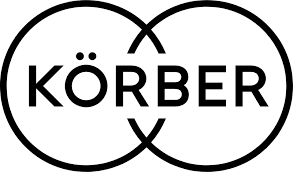
Körber’s WMS is built to streamline the efficiencies of companies struggling to manage operations in today’s complex business environment. The WMS comes with a customizable self that can be tailored to match the specific needs of your business or organization. Other than that, the WMS benefits include convenient integration with the current system, such as the supply chain system or ERP software. With this WMS, you can add necessary flexibility to your operations while making it all set for the future.
Pros | Cons |
| Körber works with a “Zero Modification” approach, which enables it customize the workflows and user interface as per the client’s needs. | Some users complained about the expense of this software, making it a huge consideration for startups and small businesses. |
| No matter what the size of your warehouse is, this WMS has a scalable solution and can suffice even for the complex warehousing needs of distribution centers. | The WMS implementation is complex, and often users find it difficult to understand. |
| This WMS has convenient integrations available that can be connected to various ERP systems. These systems include but are not limited to SAP, Microsoft Dynamics, and Sage. | As per some reviews, the new features are not updated automatically to this WMS. |
| Comprehensive warehousing features are available, enabling users to get all they need from this one warehousing software. | |
| Unlike most WMS in the market, this vendor offers both cloud and on-premises deployment styles. |
Key Features:
- Highly Adaptable Workflow Engine
- Comprehensive Warehouse Management Functionality
- Integrated Resource and Labor Management
- Real-Time Visibility and Analytics
- Extensible UDF Framework
Price Model
Körber’s Warehouse Management System also does not have its pricing or packages mentioned on its website. Therefore, if you are willing to invest in this WMS, we advise you to directly fill out the form available on their website or reach out to their support team.
Best for Businesses
- E-commerce and Direct-to-Consumer (D2C)
- Manufacturing
- Retail (Omnichannel)
- Pharmaceuticals and Healthcare
- Food and Beverage
Unique Selling Point (USP)
While most WMS vendors claim and even offer scalable properties with their WMS, Körber takes it a step further. The software has a unique edge of adaptability and configuration that tailors the system exactly to the clients’ needs. The element that stands out is that this customization does not require any extensive code. Other than that, the system also offers other important features like adding to the efficiency of the warehouse system, accuracy of orders, and reduction of overall warehouse management costs.
11. Manhattan Active Warehouse Management

Manhattan Active Warehouse Management is a microservices, cloud-native WMS designed to combine and streamline all warehouse operations with one platform. The WMS offers real-time visibility into inventory, robust automation, and a version-less architecture structure that does not need any expensive updates. This WMS makes the entire process easy, whether it is labor management, transportation, robotics and more in order to maximize efficiency and reduce order errors.
Pros | Cons |
| Because the developers built the WMS natively for the cloud, it offers convenience in scalability, automated updates, resilience, and more. | It has a steeper learning curve due to extensive functionalities, and users might require proper training and ongoing support to manage the system. |
| The WMS offers deep yet comprehensive features that help in making processes convenient for the users. The features include advanced inventory management, sophisticated order fulfillment strategies, labor management, yard management, slotting optimization, and extensive support for automation and robotics. | Being in the cloud, this WMS needs a stable internet connection to work properly with your warehouse and make operations efficient. |
| Developers designed it for complex and large enterprises, giving it the ability to manage large data sets and high volumes of inventory. | Due to its cloud structure, the customization and ongoing updates are not as convenient and frequent as with other on-premises WMS options. |
| Robust APIS and integration tools make this WMS convenient to connect and integrate with other ERP systems like SAP and Oracle, as well as other supply chain solutions. | |
| Top-notch labor management is offered by this WMS, which makes planning, optimizing, and monitoring convenient. |
Key Features:
- Unified Commerce Fulfillment
- Real-Time Inventory and Visibility
- Warehouse Execution System (WES) and Flow Optimization
- Advanced Order Streaming and Slotting
- Embedded Labor Management
Price Model
Manhattan Associates follows the same tactic of not mentioning their enterprise-level WMS’s price on their website. However, several factors influence their costing:
- Volume and Scale of Operations
- Number of Users
- Specific Modules and Functionality
- Integration Requirements
- Service Level Agreements (SLAs) and Support
Best for Businesses
- Large-Scale Retail and E-commerce
- Consumer Goods
- Apparel and Footwear
- Pharmaceuticals and Healthcare
- Industrial Manufacturing
Unique Selling Point (USP)
The USP of this WMS is that it has a unified nature and is a cloud-native platform that offers an ongoing innovation experience and scalability to large enterprises and distribution centres around the world. Manhattan Active Warehouse Management delivers a detailed suite of features—including labor management, advanced automation integration, and more—to optimize fulfillment centers and keep them up to date.
How to Choose the Best WMS for Your Business?
Picking the right warehouse management system isn’t like buying office supplies – this decision will impact your operations for years. I’ve seen companies make expensive mistakes by rushing into the wrong choice.
Start by taking a hard look at your current problems. Are you constantly running out of popular items while slow-moving products pile up? Do workers waste time searching for products? Are shipping errors hurting customer satisfaction? Write down your biggest pain points because these should drive your WMS selection.
Your business model matters more than you might think. A small online retailer has completely different needs than a company managing inventory for multiple clients. If you’re handling food products, you’ll need features like expiration date tracking. Manufacturing businesses need different capabilities than pure distribution operations.
Don’t get caught up in fancy features you’ll never use. I’ve seen companies pay for advanced analytics when they really just needed better inventory tracking. Focus on solving your actual problems first, then consider nice-to-have features.
Budget for more than just the software cost. You’ll need training, possibly new hardware, and ongoing support. Some vendors charge extra for everything, while others include training and support in their pricing. Ask about the total cost over three years, not just the monthly fee.
The vendor relationship is crucial. You want a company that understands your industry and has helped similar businesses succeed. Check their references and ask tough questions about implementation timelines and support quality.
Here’s something most people overlook: how easy is the system to use? The fanciest warehouse management system is worthless if your team can’t figure it out. During demos, pay attention to how many clicks it takes to complete common tasks.
Finally, think about growth. Your chosen system should handle more volume, additional locations, and new product lines without requiring a complete overhaul. The best warehouse management system for your business is one that grows with you, not one you’ll outgrow in two years.
Comparing WareGo vs Traditional WMS Solutions
While we feature 11 of the best warehouse management software systems from around the world in our blog, we must note that not all systems support warehouse operations equally. Most of the traditional WMS software can prove to be bulky, slow to adapt to warehouse layout, and unnecessarily complicated. This difficult nature makes warehouse managers feel stuck with outdated processes and overall inefficiency. But our top best WMS, WareGo, can change the game for you.
We built WareGo to offer a smarter, more efficient, and more intuitive experience to warehouse managers. Be it quick onboarding, seamless integrations with other systems, real-time inventory check, or simply scalability, WareGo allows you to hold end-to-end control of your warehouse through a single dashboard. Unlike other WMSs with an oriented approach, this WMS focuses on customer experience, advanced features, transparent pricing, and more to streamline your warehouse operations.
The following table will depict how WareGo is different from other traditional warehouse solutions:
Feature | Established, Enterprise WMS | Integrated ERP WMS | Cloud-Native WMS for SMBs | Highly Customizable WMS | WareGo WMS |
| Target Business | Large, complex global operations | SMBs within a specific ERP ecosystem | Small to medium-sized businesses | Mid-sized to large, niche needs | SMBs & Growing Businesses Worldwide |
| Deployment | Cloud, On-Premise | Cloud (within ERP) | Cloud | Cloud, On-Premise | Modern Cloud-Native, Global Accessibility |
| Integration | Broad, but can be complex | Seamless within specific ERP | Good, often API-focused | Good, often API-focused | Easy, Affordable, and Open Global Integrations |
| Key Strength | Extensive, advanced features | Unified business management | Speed, ease of use, scalability | Tailored to specific complexities | Intuitive Design, Affordable Scalability, Modern Tech |
| Complexity | High | Medium | Low to Medium | High | Low to Medium |
| Customization | High, often costly | Good (within ERP limitations) | Limited to configurations | High, often costly | Flexible Configuration, Extensible Architecture |
| Pricing Model | Subscription, Perpetual, Higher Cost | Bundled within ERP subscription | Subscription-based, tiered | Subscription, Perpetual, Higher Cost | Competitive Subscription, Value-Driven, no implementation costs |
| Labor Management | Robust | Basic | Basic to Good | Robust | User-Friendly, Efficient Core LM |
| Automation Integrati | Strong | Basic | Good | Good to Strong | Streamlined Integration with Modern Automation |
| Analytics & Reporting | Strong | Good | Good | Good to Strong | Clear, Actionable, Modern Global Reporting |
| USP | Power and global reach | Unified business platform | Speed and scalability in the cloud | Tailored complexity management | Intuitive, Affordable, Modern WMS for Growth |
| Why WareGo is Better | Can be overly complex and costly for SMBs. | Limited functionality outside the core ERP. | May lack depth for complex operations. | Can be expensive and require significant expertise. | WareGo is a modern, user-friendly, cost-effective WMS solution for global SMBS and large enterprises. It provides a brilliant combination of important features, convenient integrations, and scalability without compromising budget and time frames. |
As compared to most WMS vendors, WareGo makes subscription convenient with no implementation fees, no hidden charges. Avoid confusion and pick an option that aligns perfectly with your business.
Book a Demo NowFinal Thoughts: Best Warehouse Management Systems 2025
A simple search query can lead you to many WMS vendors claiming to be the best, but choosing a WMS for your distribution center or business is a huge decision, impacting the scalability and efficiency of your overall business. And you need to be cautious rather than trusting verbal promises. A thoughtfully selected warehouse management system streamlines operations, improves visibility, enhances inventory accuracy, and supports your business’s growth. With our carefully curated list of the 11 best warehouse management software systems, you can compare the features, pricing, and integration capabilities to pick a WMS that aligns perfectly with your warehouse needs.
First, go through the guide carefully. Then, take your time to evaluate your options. Finally, make a decision that truly benefits your business in the long run.
Frequently Asked Questions
Which system is known as one of the best Warehouse Management Systems?
People recognize WareGo as one of the best warehouse management systems worldwide. It helps supply chain companies, distribution centers, warehouses, 3PL companies, and more with Inventory, inbound and outbound, vehicle fleet, and order fulfillment solutions using one intuitive interface. With 3 convenient packages to choose from and 0 implementation charges, clients review WareGo as the best around the world.
How do I know if my business needs a WMS?
Your business needs a WMS when you begin to notice discrepancies in stock levels. In addition, you may experience a slow picking and packing process, frequent errors in order fulfillment, and a lack of proper visibility into inventory. Ultimately, these and other factors contribute to making your warehouse operations inefficient.
What are the four types of warehouse management systems?
The four types of warehouse management systems are: standalone WMS, which delivers comprehensive warehouse management features; ERP-integrated WMS, which offers a unified business management experience; SCM, which manages the entire supply chain from receiving to transportation; and cloud-based WMS, which functions as a software-as-a-service product hosted on the vendor’s system.
How much does a warehouse management system cost?
The warehouse management system cost depends highly on the type of WMS you picked, the features you seek, and the vendor you are working with. At WareGo, we offer 3 different packages to choose from and do not charge any implementation fee to make the entire process budget friendly for our customers.
